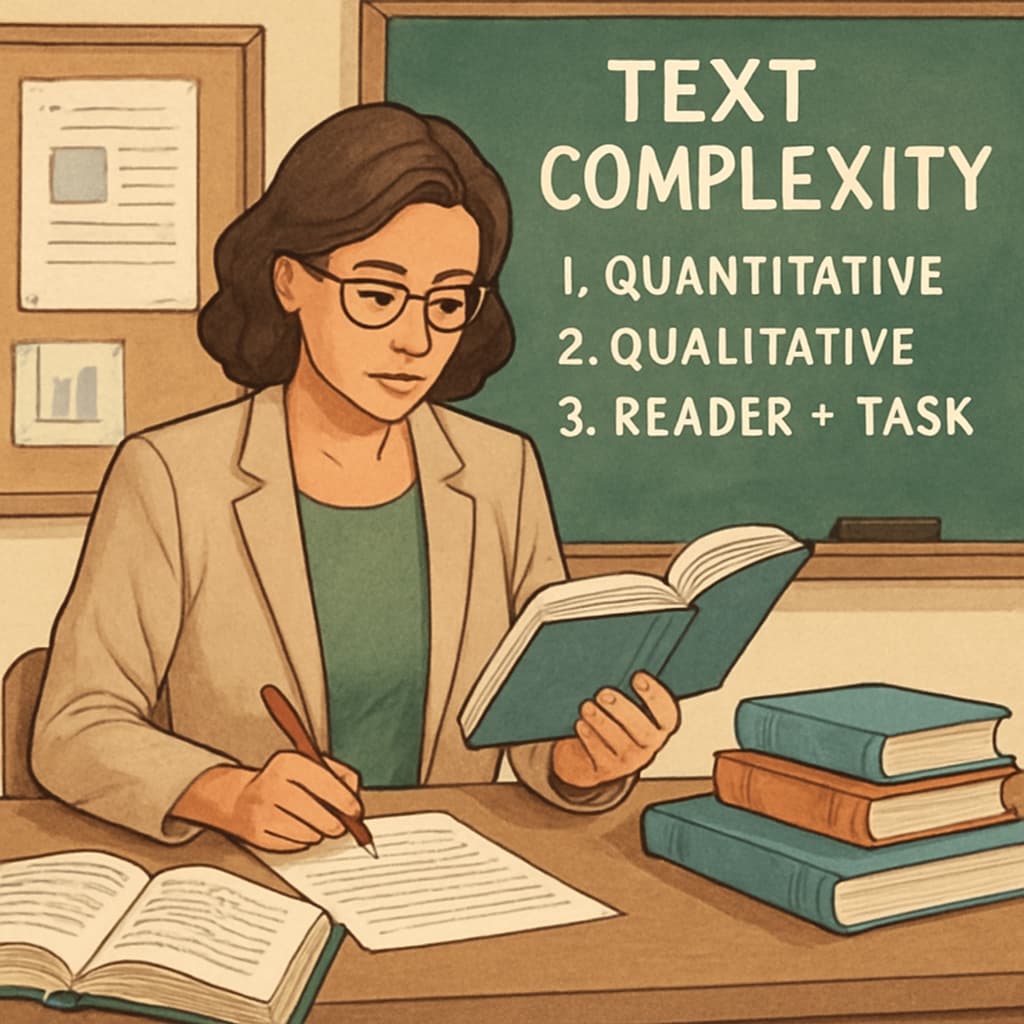Reading comprehension is a cornerstone of education, and the ability to assess the complexity of reading materials is vital for effective teaching. A new research project aims to deepen our understanding of text complexity by inviting elementary and middle school teachers to contribute their professional judgment. This initiative, requiring only 30 minutes of participation, not only advances the field of reading research but also provides a scientific foundation for future curriculum selection.

The Role of Teachers in Text Complexity Evaluation
Teachers play a unique role in evaluating reading materials due to their day-to-day interactions with students and their insights into how texts are understood by different age groups. Unlike automated tools, educators can consider nuanced factors such as cultural relevancy, sentence structure, and vocabulary appropriateness. This study aims to harness their expertise to refine text complexity assessments and improve instructional strategies.
For example, teachers are often the first to notice when a text is too challenging or simplistic for their students. By contributing their feedback to this research, they can help create more accurate metrics for analyzing text complexity, ensuring materials are suitable for diverse learning needs.
Why Text Complexity Matters
Text complexity is an essential factor in reading comprehension and overall literacy development. It affects how students engage with and understand reading materials, influencing their academic success. Complex texts with varied sentence structures and advanced vocabulary challenge students to grow, while overly simple texts may fail to stimulate critical thinking skills.
According to Britannica, balanced text complexity helps students transition smoothly between grade levels, preparing them for future academic demands. Therefore, assessing complexity accurately is crucial in designing curricula that foster both comprehension and intellectual growth.

How Teachers Can Participate in the Study
This research project offers a straightforward way for teachers to contribute their professional insights. Participation involves reviewing selected reading texts and providing an evaluation of their complexity based on specific criteria. The process is designed to be simple and time-efficient, requiring only half an hour.
Key benefits of participation include:
- Contributing to cutting-edge research in reading comprehension and text evaluation.
- Influencing the development of educational materials that better serve student needs.
- Enhancing professional development by engaging with innovative approaches to curriculum design.
Teachers interested in joining can find more details through reputable educational platforms or directly contact the research coordinators.
Shaping the Future of Curriculum Design
By leveraging teacher expertise, this study has the potential to revolutionize how text complexity is assessed and applied in educational contexts. Teachers’ input ensures that assessments consider real-world classroom dynamics, student diversity, and the challenges of modern education.
As a result, future curricula can be tailored to meet the evolving needs of students, providing a stronger foundation for literacy and learning. In the words of the researchers, “Teachers are the cornerstone of education, and their insights are invaluable in advancing how we evaluate and utilize reading materials.”
To learn more about text complexity and its implications, consider exploring resources like Reading comprehension on Wikipedia.
Readability guidance: This article uses concise paragraphs, integrates lists for clarity, and maintains a natural flow with transitional phrases. The active voice ensures direct engagement with the reader.


